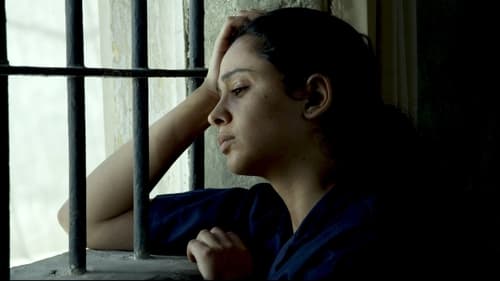
Thanks
A delicate portrait of Mei Shigenobu, daughter of the founder of the Japanese Red Army in Beirut, Fusako Shigenobu.

Editor
A young Palestinian schoolteacher gives birth to her son in an Israeli prison where she fights to protect him, survive and maintain hope.

Editor
Female inmates at a Lebanese prison share their personal stories of domestic violence, traumatic childhoods and more through a 10-month theater project.

Editor
With EMBERS, Tamara Stepanyan’s first feature-length documentary, the director seeks to honour the memory of her late grandmother, whom she was named after. Stepanyan visits the elder Tamara’s hometown in Armenia, where she spends time with her grandmother’s circle of friends, who discuss their memories of daily life with Tamara, bringing to light their ideological and political viewpoints in the process. As the conversations progress, a dialogue emerges between past and present – between the Tamara of today and the Tamara of two generations ago, whose life was shaped by her experiences during World War II. Despite the absence of the film’s central subject, her presence is deeply felt through her impact on those who survived her. Stepanyan’s mourning the loss of someone close to her heart is acutely apparent; here, she faces down that sorrow with a bright tribute to a wonderful woman.

Producer
With EMBERS, Tamara Stepanyan’s first feature-length documentary, the director seeks to honour the memory of her late grandmother, whom she was named after. Stepanyan visits the elder Tamara’s hometown in Armenia, where she spends time with her grandmother’s circle of friends, who discuss their memories of daily life with Tamara, bringing to light their ideological and political viewpoints in the process. As the conversations progress, a dialogue emerges between past and present – between the Tamara of today and the Tamara of two generations ago, whose life was shaped by her experiences during World War II. Despite the absence of the film’s central subject, her presence is deeply felt through her impact on those who survived her. Stepanyan’s mourning the loss of someone close to her heart is acutely apparent; here, she faces down that sorrow with a bright tribute to a wonderful woman.

Editor
For 15 months, 45 inmates, some completely illiterate, worked together to present an adaptation of Reginald Rose's famous stage play 12 Angry Men.

Editor
"Born in Palestine. Died in Lebanon." "Born in Palestine. Died in Syria." "Born in Palestine. Died in Jordan." The camera pans across an endless row of white tombstones. The Shadow of Absence takes death as its subject yet in doing so presents a powerful statement about Palestinian life. Weaving elements of his own story of dislocation into the Palestinian collective narrative, filmmaker Nasri Hajjaj reverses the usual focus of the Nakba documentary by exploring the denial of the Palestinian right to death and burial in the homeland.

Editor
Each morning Beirut awakens to a new murder seemingly committed by a serial killer, with victims found emptied of their blood. At the same time a doctor, Khalil, begins to experience strange symptoms that destabilise him and transform his life. A connection slowly emerges that seems to link Khalil to these victims. Salhab’s body of films have come to narrate the state of Lebanon – and Beirut in particular – during and after the civil war, and this film is no exception.

Editor
Acclaimed director Jean Chamoun looks at the lives and works of some of the women who have joined in the fight for their Palestinian homeland. We learn of young resistance fighter Kifah Afifi’s experience as a survivor of the 1982 Shatila massacre in Lebanon when she was just twelve years old. She tells about fighting the Israeli occupation of South Lebanon in the 1990s and of her imprisonment in the Khiam detention facility, which was run by Israel’s auxiliary militia, the South Lebanon Army.

Yasmine
Two young girls of the war generation, Yasmin and Leila, are in search of Beirut. When they meet an elderly film enthusiast with a secret store of Lebanese films, they persuade him to screen his collection for them. So begins an initiation into the myths and images of Beirut, but the girls want cold figures and facts, war babies indifferent to the memories evoked.

Editor
During the Lebanese civil war, thousands of people disappeared. In most cases, the bodies were not found and the circumstances of their disappearance never known. Today, I travel through Beirut, asking the inhabitants I encounter, one same question: Do you know anyone who was kidnapped here during the war? My investigation carries me through the many districts around the "Green line", which used to divide Beirut between East and West, and where militias set up their checkpoints, the scenes of many kidnappings, and crimes. I thereby attempt to trigger the process of memory and to reveal the multiplicity of existing discourses on the war and the immensity of the drama. As I cross town and discover places laden with history, I draw a personal map of this city.










